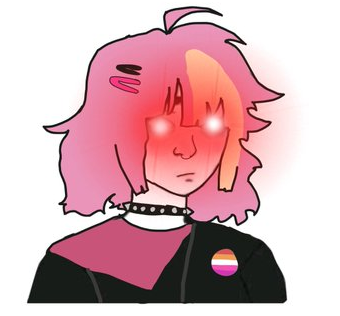As we know, Marxism started off as a critique of political economy, focusing on the relations of production. The proleteriat and bourgeois and their conflict are all derived from this concept. Since then, countless people have built on top of this foundation and applied Marxism to specific conditions. A major success of this is the adaptation of Marxism to anti-colonial and anti-imperialist struggle in Africa, Asia, and South America, turning communism into a global movement.
On the front of gender, things are less clear. Women's liberation has come hand in hand with communist revolutions. This is a direct result of Marxism, as liberation of women is in line with the objective of healthier relations of production, making them part of the proleteriat. However, although there were great women revolutionaries like Rosa Luxemburg, women were rarely mobilized as a major revolutionary force, as the women proleteriat was limited in size prior to the revolution.
The new left of the 60s saw the emergence of queer people as a radical force. However, the scale was relatively limited and it was a phenomenon that was localized to the west.
There are a lot of queer comrades in the online left. But also, today more than ever, queerness is being absorbed into capitalism, becoming more pacified and divorced from its original radical nature.
Communists fight for the liberation of all of mankind, which includes queer people, disabled people, neurodiverse people, and the list probably goes on and on according to twitter. But in practice, there's going to be priorities, there's going to be compromises. Unfortunately, revolution is not a sanitized process. Capitalism, patriarchy, gender binary wont be abolished in a politically correct manner.
So what role will queer people play in the revolution? How will their revolutionary potential be developed?
I really appreciated the context and theorizing on this subject by Holly Lewis in "The Politics of Everybody". she lays out the perspectives espoused by dominant viewpoints in Marxist, feminist, transgender, and queer theory - the separation of the last 3 alone as distinct viewpoints in conversation with each other was eye-opening to me. but it also clarified many of the disagreements that I've noticed bubbling under the surface between various groups - we mostly put those aside in the name of solidarity yet a glance at the ideological roots reveals contradictions at the heart of these quiet tensions. from there, she deconstructs the failures of each perspective, taken alone and even taken together as intersectionalism - notably absent the Marxist perspective. she finally posits a theory for the shared basis of these social, political, and economic critiques.
the book is extremely worth a read and I'm surprised it's not talked about more here.
"For more and more queer and trans people, regardless of marital status, there is no inheritance, no health benefits from employers, no legal immigration status, and no state protection of our relationship to our children. Four decades after queer and trans people took to the streets throwing heels, bottles, bricks, and anything else we had to ward off police, the official word is that, except for being able to get married and fight in the military, 2 we are prett:)r much free, safe, and equal. And those of us who are not must wait our turn until the "priority'' battles are won by the largely white, male, upper-class lawyers and lobbyists who know better than us. 3
Fortunately, radical queer and trans organizing for deep transfor- mation has also grown alongside this "triclde-down"4 brand of "equality'' politics mentioned above. Although there is no neat line between official gay "equality'' politics on the one hand, and radical "justice" politics on the other, it is important to draw out some of the key distinctions in how different parts of our movements today are responding to the main problems that queer and trans people face. This is less about creating false dichotomies be.tween "good" and "bad" approaches, and more about clarifYing the actual impact that various strategies have, and recognizing that alternative approaches to the "official" solutions are alive, are politi- cally viable, and are being pursued by activists and organizations around the United States and beyond."
Building-an-Abolitionist-Trans-Queer-Movement-With-Everything-Weve-Got
Its 35 pages and is really good.


